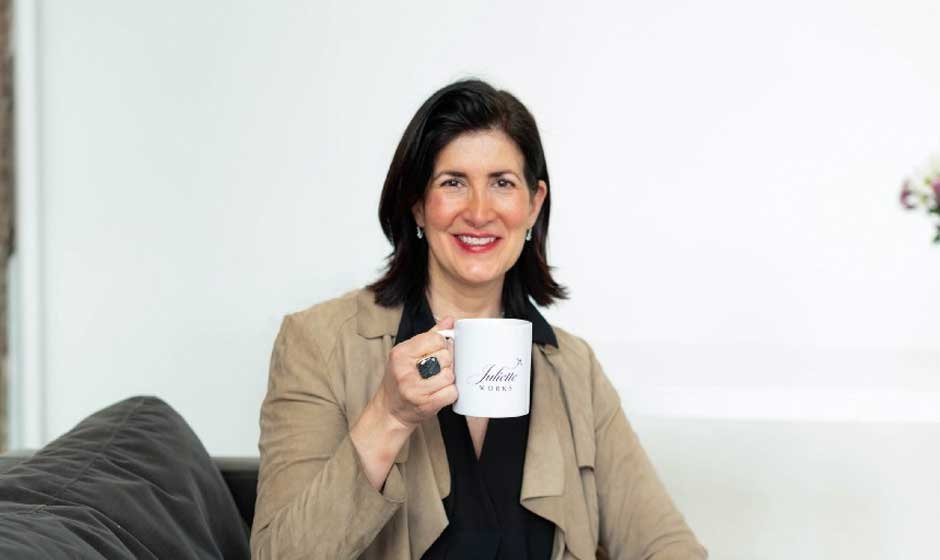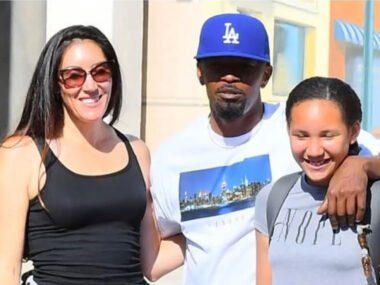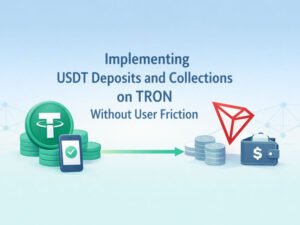How a Former Blackstone COO Transformed Her Career to Bridge Technology and Humanity
Introduction – The Executive Who Chose Purpose Over Power
Elizabeth Sandler’s story isn’t your typical corporate success tale. After spending 25 years climbing the ladder in global financial services, she did something that would make most executives pause: she walked away from it all.
What makes her journey fascinating isn’t just the dramatic career pivot. It’s how she transformed from managing billions at powerhouse firms like Deutsche Bank and Blackstone into becoming the voice behind the AI Humanist movement. Her path shows us something important about modern leadership—sometimes the biggest risk is staying exactly where you are.
Instead of chasing the next promotion or corner office, Sandler decided to write her own playbook. One that puts purpose front and center, where authenticity matters more than appearances, and where technology serves humanity rather than the other way around.
Building an Empire – The First Chapter in Financial Services
Sandler didn’t stumble into finance by accident. Armed with a Duke University degree and an MBA from Wharton, she was clearly destined for big things in the financial world.
Her rise through Deutsche Bank was impressive by any standard. Over 16 years, from 2000 to 2016, she worked her way up to Managing Director and Global Chief Operating Officer across several divisions. Whether it was the Risk Division, Structured Finance, or Commercial Real Estate, Sandler proved she could handle whatever came her way.
But the real test came at Blackstone from 2016 to 2018. As Managing Director and COO of Blackstone Real Estate Debt Strategies, she wasn’t just another executive—she was overseeing operations worth billions. Picture coordinating teams scattered across dozens of countries while keeping tabs on complex financial deals. That was her Tuesday.
Here’s what makes it even more remarkable: she was doing all this while raising two sons in three different countries. Talk about juggling act. Most people struggle to balance a demanding job with family life in one location, let alone across continents.
The Awakening – When Success Wasn’t Enough
You’d think reaching the top of the financial world would feel like victory. For Sandler, it felt more like an empty achievement. The wake-up call came during what should have been a dream family vacation—three weeks exploring sub-Saharan Africa.
Picture this: you’re on a 17-hour flight from South Africa to New York, scrolling through safari photos with your family. That’s when Sandler turned to her oldest son and said something that would change everything: “I’ve officially done everything in life I wanted to do.” Instead of satisfaction, those words revealed a troubling truth—she had no idea what came next.
Her first attempt at change seemed logical enough. After 16 years at Deutsche Bank, she switched companies. But 18 months into her Blackstone role, reality hit hard. Different company, same game. Success was still measured in dollars, power plays, and professional trophies—none of which excited her anymore.
So she did something that would terrify most people: she quit without a backup plan. No safety net, no clear next step. Just a gut feeling that staying on the corporate treadmill would slowly kill her spirit.
Reinventing Leadership – The Birth of Echo Juliette
What do you do the week after leaving a high-powered corporate job? If you’re Elizabeth Sandler, you head to Italy for a seven-day silent retreat. Keep in mind, she’d never meditated before and barely spoke Italian. Talk about jumping into the deep end.
But sometimes the most uncomfortable experiences teach us the most. During those seven days of silence, something clicked. Sandler realized the world was full of problems that people with her skills could actually solve. Instead of feeling overwhelmed by everything wrong with the world, she decided to focus on one area where she could make a real difference.
The statistics were sobering: 75% of workers hate their jobs. That’s not just a number—that’s millions of people spending most of their waking hours miserable. For someone with Sandler’s leadership background, this wasn’t just a problem; it was an opportunity.
In January 2019, Echo Juliette was born. The company focuses on three areas that matter: executive coaching, making employees more productive, and creating workspaces that actually work for people. It marked Sandler’s shift from being the “number two” person (COO) to calling the shots as CEO.
The transition wasn’t easy. An executive coach once told her she could be a CEO, but warned that her biggest challenge would be finding a COO she trusted as much as herself. She’s still looking for that person, but in the meantime, she’s gotten comfortable being the one making the final decisions.
The AI Humanist Vision – Bridging Technology and Humanity
While Echo Juliette was taking off, Sandler was also tackling one of the biggest questions of our time: how do we keep our humanity as artificial intelligence reshapes everything around us?
Enter the AI Humanist movement. This isn’t just another tech project—it’s Sandler’s answer to a world that seems increasingly divided between those who worship technology and those who fear it. Her approach is refreshingly practical: technology should make us more human, not less.
What makes her perspective unique is her background. She understands both the corporate machine and human psychology. When companies are trying to figure out how to implement AI without destroying their culture, Sandler can speak both languages.
Her investment strategy reflects this philosophy. She specifically looks for HumanTech companies—businesses that put the human element first when developing technological solutions. It’s not about avoiding progress; it’s about making sure progress serves people.
You can catch her insights in speaking engagements like “What silence taught me about superintelligence.” The title alone tells you she’s not your typical tech evangelist.
Championing Women in Leadership
Sometimes the biggest revelations come from the most mundane tasks. When COVID-19 hit in March 2020, Sandler had to cancel 112 meetings scheduled over five months. As she went through her calendar, a pattern emerged that stopped her cold: every single meeting was with a man.
The irony wasn’t lost on her. Here she was, someone who’d fought gender inequality her entire career, and she was inadvertently contributing to the very problem she’d tried to solve. It was a humbling moment that sparked a major shift in her mission.
Instead of just talking about the problem, Sandler did something about it. She took the leadership programs she’d developed for corporate clients and redesigned them specifically for women. What started as a side project quickly became her main focus: developing women leaders who define success on their own terms.
Her approach is different from the typical “lean in” advice. Rather than teaching women to play by existing rules, she’s helping them write new ones. Rules that value consciousness, meaning, and purpose over corner offices and six-figure bonuses.
It’s personal for Sandler. She wants to make sure other women don’t face the same false choice between professional success and personal fulfillment that she once thought was inevitable.
Board Leadership and Investment Philosophy
Just because Sandler left the traditional corporate world doesn’t mean she abandoned it entirely. Since 2019, she’s served on the board of FS/KKR Advisor (FSK), along with trustee positions on K-FIT and K-FITS.
These aren’t just ceremonial roles. Sandler brings her unique perspective on human-centered leadership to traditional corporate governance. Instead of focusing solely on financial metrics, she pushes organizations to consider how their decisions affect real people.
Her investment approach follows the same philosophy. When evaluating HumanTech companies, she looks beyond the usual financial indicators. Does this company genuinely enhance human potential, or is it just automating people out of jobs? It’s a question more investors should be asking.
This dual perspective—board member and investor—gives her a comprehensive view of how organizations can successfully balance technological advancement with human values. It’s exactly the kind of insight companies need as they navigate an increasingly complex business landscape.
Personal Growth and Authentic Leadership
One of the biggest changes in Sandler’s approach has been embracing what psychologist Carol Dweck calls a “Growth Mindset.” Instead of seeing setbacks as failures, she now views them as learning opportunities. It sounds simple, but it’s revolutionary for someone who spent decades in environments where failure wasn’t an option.
This mindset shift has been crucial as she’s built her business from scratch. Running a startup requires completely different skills than managing established corporate operations. The willingness to be a beginner again, despite her impressive resume, shows the kind of humility that authentic leadership requires.
Her work schedule might surprise you: seven days a week. But here’s the thing—she doesn’t see it as a sacrifice because the work aligns with her values. She’s restructured her life to include what matters: walking her dog, reading, quality time with family. It’s not about perfect balance; it’s about intentional choices.
What makes Sandler relatable is her honesty about the challenges. She doesn’t pretend reinventing yourself is easy or that she has all the answers. That vulnerability, which would have been seen as weakness in her corporate days, has become one of her greatest strengths.
Conclusion – A Legacy of Transformation and Impact
Elizabeth Sandler’s journey from Wall Street to AI Humanist isn’t just an inspiring personal story—it’s a roadmap for anyone questioning whether there’s more to professional life than climbing the traditional ladder.
Her impact goes way beyond her own transformation. Through Echo Juliette, the AI Humanist movement, and her work developing women leaders, she’s actively changing how organizations think about technology, leadership, and human values.
The timing couldn’t be better. As businesses struggle with rapid technological change, evolving workforce expectations, and demands for authentic leadership, Sandler’s approach offers a way forward that doesn’t require choosing between progress and humanity.
For anyone considering their own career pivot, Sandler’s story offers both inspiration and practical lessons. Starting over in your forties isn’t just possible—it might be exactly what the world needs. Her success shows there are multiple ways to build a meaningful career, and sometimes the most unconventional path leads to the greatest impact.
As AI continues reshaping the workplace, we need more leaders like Elizabeth Sandler who understand that our technological future should enhance rather than replace our humanity. Her work ensures that as we move forward, we don’t lose sight of what makes work—and life—truly meaningful.










